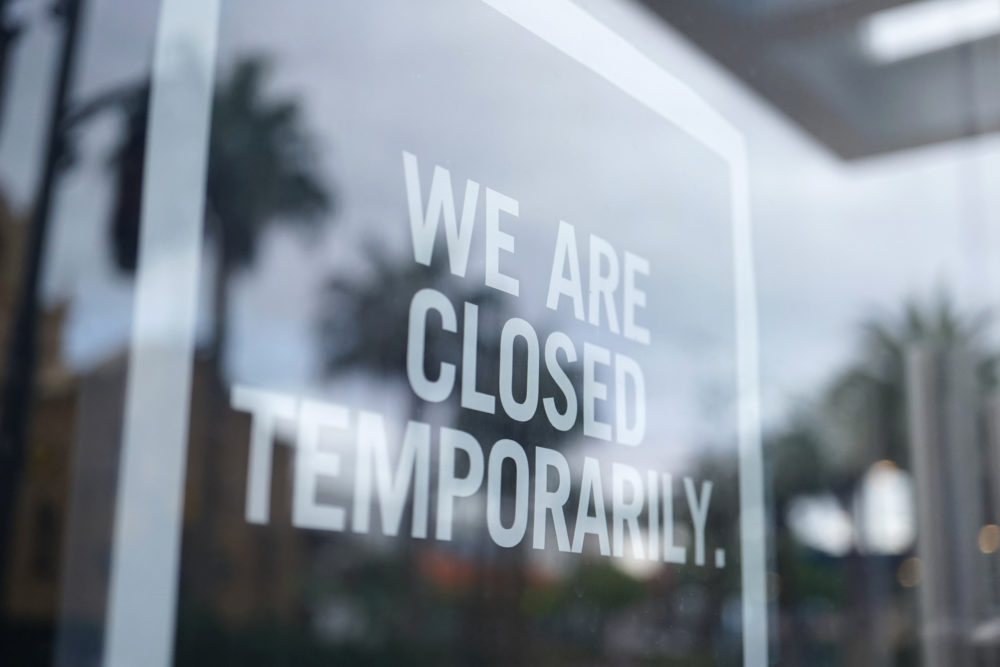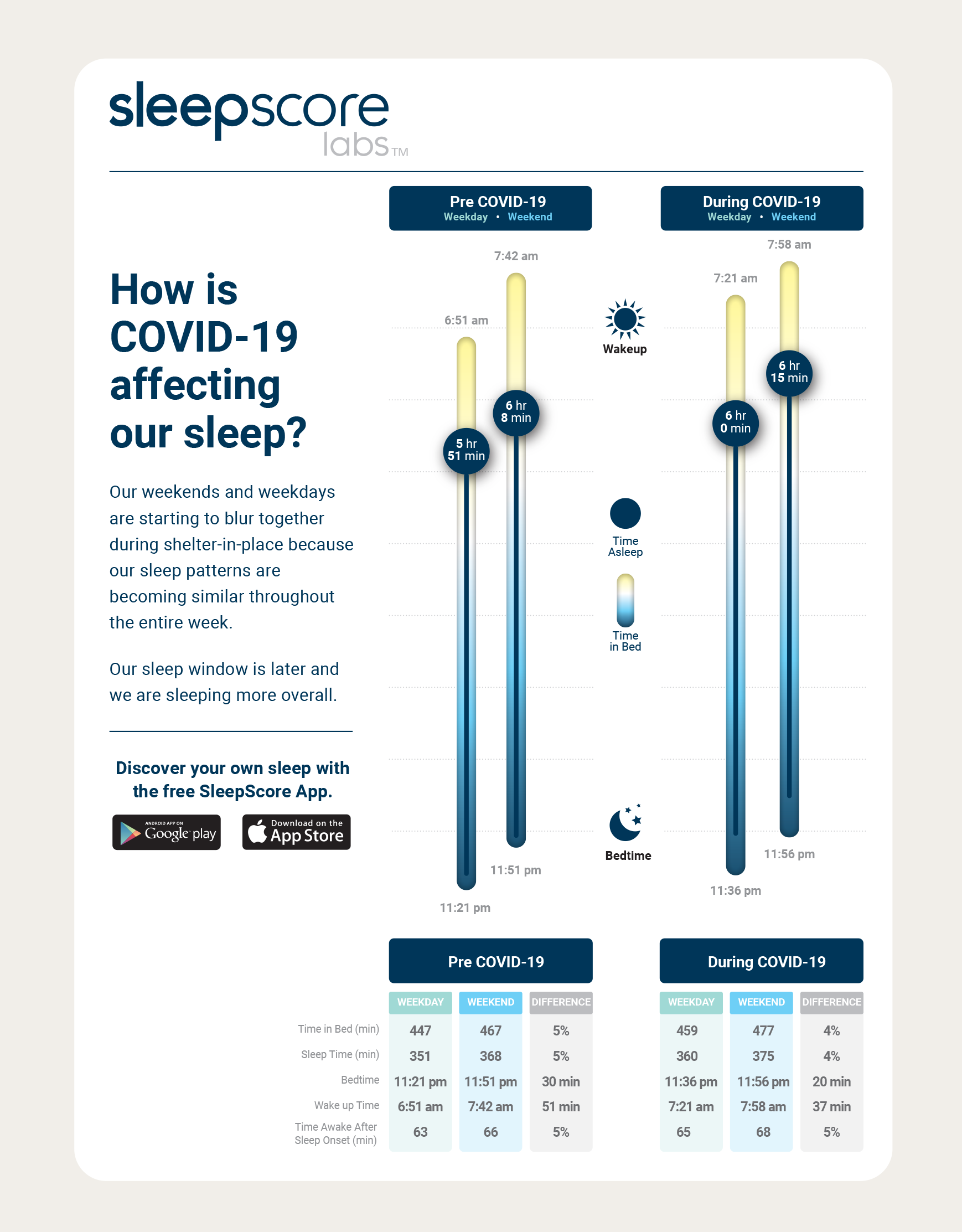Are We Getting More Sleep During COVID-19 Restrictions?

Shelter in place, social distancing and the sudden need for mass teleworking may have some unintended impacts on our sleep. As many of us can relate, it feels as if all days of the week are starting to feel the same. For most, this is a big change in our routines, without commuting, fixed lunch breaks, planned social activities for the kids, working from home, or not being able to work at all. So, days might start to look more alike. Not only did we see that our user’s daytime routines changed, but their nighttime routines also changed.
Here’s what we discovered:
- SleepScore users went to bed a bit later (+13 mins), but also slept in later (+23 mins), resulting in spending more time in bed (+10 mins), and sleeping longer (+7 mins) as compared to before the COVID period.
- This was designated March 16th to April 3rd. SleepScore selected this time frame as the COVID period when online search activity related to the virus rose rapidly in the US. The start of this time frame begins one week prior to the CA and NY statewide shelter-in-place mandates and concludes on April 3rd.
- The young adults (18-30) show the largest increase in time in bed, getting an extra 20 minutes a night and almost hitting the 8 hrs, but the 60+ elderly still show the longest time in bed on average, hitting the 8 hours.
- The age group 30-60 does also show some time-in-bed improvement (8 min) but since in this group is more likely to be parents, they just might not have had the opportunity to sleep in.
So, it appears that we seem to shift our sleep timing and have a bit more time scheduled for sleep during this period.

Later bedtimes might be attributed to a few causes:
- People may be starting to feel tired later at night (no commute, less physical activity, as confirmed by recently published results of fitness tracker data), and are also engaging in later wake times, likely because of the lack of a commute.
- Interestingly, these shifts are more pronounced on weekdays as compared to weekends, so the difference between weekday sleep and weekend sleep becomes less.
So, in the end, not only are the days becoming more alike, but the nights are also becoming more alike. It seems our sleep timing clearly benefits from the fact that we need to show up at our virtual jobs at the same time as before but can skip the commute, allowing many to sleep in.